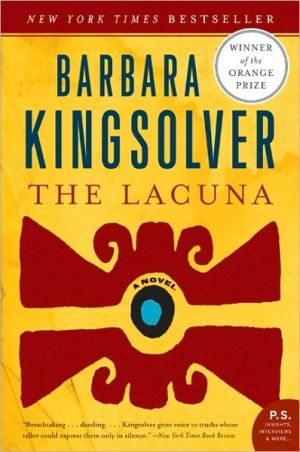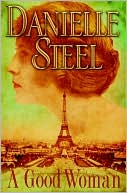Birds Without Wings
In his first novel since Corelli’s Mandolin, Louis de Bernières creates a world, populates it with characters as real as our best friends, and launches it into the maelstrom of twentieth-century history. The setting is a small village in southwestern Anatolia in the waning years of the Ottoman Empire. Everyone there speaks Turkish, though they write it in Greek letters. It’s a place that has room for a professional blasphemer; where a brokenhearted aga finds solace in the arms of a Circassian...
Search in google:
In his first novel since Corelli’s Mandolin, Louis de Bernières creates a world, populates it with characters as real as our best friends, and launches it into the maelstrom of twentieth-century history. The setting is a small village in southwestern Anatolia in the waning years of the Ottoman Empire. Everyone there speaks Turkish, though they write it in Greek letters. It’s a place that has room for a professional blasphemer; where a brokenhearted aga finds solace in the arms of a Circassian courtesan who isn’t Circassian at all; where a beautiful Christian girl named Philothei is engaged to a Muslim boy named Ibrahim. But all of this will change when Turkey enters the modern world. Epic in sweep, intoxicating in its sensual detail, BIRDS WITHOUT WINGS is an enchantment.A Notable Book for Adults (American Library Association)Winner of AUDIOFILE Earphones AwardThe Washington Post - Nicholas Gage… in his compassionate portrayal of simple people struggling against sweeping historical forces and his vivid descriptions of the cruelties of war, de Bernières has reached heights that few modern novelists ever attempt. While Birds Without Wings can be confusing and meandering at times, it offers a thrilling ride through a whirlwind of history that changed forever a pivotal part of our world.
Editor's Note: At this point in the novel, Yusuf's daughter is pregnant by a Christian, leaving him with only one, terrible course of action...\ The Tyranny of Honour\ Yusuf the Tall loved all his children equally, with a passionate adoration that, when he thought about it, sometimes made him lachrymose. If his life were like a garden, then his daughters would be like the roses growing alongside its walls, and his sons would be like young trees that formed a palisade against the world. When they were small he devoted happy hours to their entertainment, and when they grew older he hugged them until their eyes bulged and they thought that their ribs would crack. He had grown to love his wife too, partly because this is what happens when a wife is well chosen, and partly because from her loins had sprung these brooks and becks of happiness.\ But now Yusuf the Tall did not know what to do with his hands. It seemed as though they were behaving on their own. The thumb and middle finger of his left hand stroked across his eyeballs, meeting at the bridge of his nose. It was comforting, perhaps, for a scintilla of time. There was no comfort longer than that in this terrible situation. Sometimes his hands lay side by side on his face, the tips of his thumbs touching the lobes of his ears. He had thrown off his fez so that they could stroke his hair backwards, coming to rest on the back of his neck. The maroon fez lay in a corner on its side, so that his wife Kaya kept glancing at it. Despite this awful emergency, and the drama in which she was caught up, her instinct was to tidy it away, even if it were only to set it upright. She sat on the low divan, kneading her fingers, biting her lip and looking up at her husband. She was as helpless as one who stands before the throne of God.\ Yusuf the Tall strode up and down the room, waving his hands, protesting and expostulating, sometimes burying his face in his hands. Kaya had not seen him so anguished and begrieved since the death of his mother three years before. He had painted the tulip on the headstone with his own hands, and had taken bread and olives so that he could eat at the graveside, imagining his mother underneath the stones, but unable to picture her as anything but living and intact.\ Yusuf had passed the stage of anger. The time had gone when these patrollings of the room had been accompanied by obscenities so fearful that Kaya and her children had had to flee the house with their hands over their ears, their heads ringing with his curses against his daughter and the Christian:"Orospu çocu¢gu! Orospu çocu¢gu! Piç!"\ By now, however,Yusuf the Tall was in that state of grief which foreknew in its full import the horror of what was inescapably to come. His face glistened with anticipatory tears, and when he threw his head back and opened his mouth to groan, thick saliva strung itself across his teeth.\ Overtaken, finally, by weariness, Kaya had given up pleading with him, partly because she herself could see no other way to deal with what had occurred. If it had been a Muslim, perhaps they could have married her to him, or perhaps they could have repeated what had been done with Tamara Hanim. Perhaps they could have kept her concealed in the house, unmarried for ever, and perhaps the child could have been given away. Perhaps they could have left it at the gates of a monastery. Perhaps they could have sent her away in disgrace, to fend for herself and suffer whatever indignities fate and divine malice should rain upon her head. It had not been a Muslim, however, it had been an infidel.\ Yusuf was an implacable and undeviating adherent to his faith. Originally from Konya, he was not like the other Muslims of this mongrel town who seemed to be neither one thing nor the other, getting converted when they married, drinking wine with Christians either overtly or in secret, begging favours in their prayers from Mary Mother of Jesus, not asking what the white meat was when they shared a meal, and being buried with a silver cross wrapped in a scrap of the Koran enfolded in their hands, just because it was wise to back both camels in salvation’s race. Yusuf the Tall regarded such people with disdain. Moreover, it is one of the greatest curses of religion that it takes only the very slightest twist of a knife tip in the cloth of a shirt to turn neighbours who have loved each other into bitter enemies. He had lived serenely among Christians for most of his life, but now that she had despoiled and defiled herself with an infidel, this was the worst in all that tormented him.\ Yusuf stopped pacing the room, and at last called his sons together. His other daughters assembled too, standing silent and cowed at the back of the darkened room.\ When his sons were before him, Yusuf took his pistol from his sash, weighed it in his hand, took it by the barrel, and handed it to his second son, Sadettin. Sadettin took it by the butt, and looked at it in disbelief. At first his voice seemed to fail him. "Baba, not me," he said.\ "I have tried," said Yusuf,"and I can’t. I am ashamed, but I can’t."\ "Not me, Baba. Why me?"\ "You have courage. Great courage. And you are obedient. This is my command."\ "Baba!"\ Yusuf beheld the spiritual and moral agony of his second son, and the surprise, but he would not relent.\ "It should be Ekrem," pleaded his second son, gesturing towards the first-born. "Ekrem is oldest." Ekrem held out his hands as if to push his brother away, shaking his head vigorously.\ "Ekrem will take my place when your mother dies," said Yusuf. "He is the first-born. You are all used to obeying him. He will be head of the family. It is you who must do this thing." He paused. "I command it."\ Father and second son looked at each other for a long moment. "I command it," repeated Yusuf the Tall.\ "I would rather kill myself," said Sadettin at last.\ "I have other sons." Yusuf placed his hand on Sadettin’s shoulder.\ "I am your father."\ "I will never forgive you," replied his second son.\ "I know. Nonetheless, it is my decision. Sometimes . . ." and here he hesitated, trying to name whatever it is that takes our choices away, ". . . sometimes we are defeated."\ Yusuf and Sadettin stood facing each other silently, and at the back of the room one of the girls began to sob. Sadettin appealed to his mother; kneeling before her and taking her hands in his, "Anneci¢gim! Annece¢gim!"\ Kaya removed her hands from his grasp, and raised them in a small gesture of impotence. She seemed suddenly like an old woman who has turned her back on life.\ "I command you," said Yusuf the Tall.\ "It will be on your head," exclaimed Sadettin angrily, rising to his feet.\ "On my head," repeated Yusuf.\ Sadettin entered the haremlik. It was dark because the shutters were closed, and it smelled comfortingly of things feminine and mysterious. In the corner, glowing and glittering with terror in the half-light, he saw the eyes of his sweet sister, Bezmialem, of all his sisters the most gentle, and the one he loved the best.\ "Sadettin," she murmured, her soft voice full of resignation. "I thought it would be Ekrem."\ "I thought it would be him," said Sadettin.\ She glanced at the pistol, placed her hand on her stomach and looked down. "You will kill both of us."\ "Yes."\ "The child is innocent."\ Sadettin felt the pistol grow heavier in his hand. To himself he thought, "I won’t defile my right hand" and he transferred it to his left.\ "I am innocent," said Sadettin.\ "We are all innocent," replied Bezmialem.\ "You are not." He felt a sudden surge of anger. He blamed her for bringing down the shame, and for shutting him in this trap.\ "I found something better than honour," she said, her eyes momentarily shining with happy remembrance.\ "What is better than honour?"\ "I don’t know the name of it. But it is better. It makes me innocent."\ Sadettin took his sister’s right hand in his, knelt before her, and touched it to his heart, his lips and his forehead. He kissed it. He tried to suppress his pain, and he bowed his head. "It is not me who does this thing," he managed to say at last. He said it as quickly as he could, so that the words would not be throttled by sorrow and die in his throat.\ "It is our father who does this," said his sister. "The injustice isn’t yours."\ "May God receive you in paradise," said Sadettin.\ "May I see you there," replied Bezmialem.\ "May the angels carry you."\ "And you when the time comes."\ Sadettin raised himself up and realised that after all he would have to defile his right hand. He transferred the pistol, threw his left arm around his sister’s neck and embraced her. They stood together, trembling. Softly she put her arms around him, as if he were a lover. He felt the soft pulse of her breath on his neck. He placed the muzzle of his pistol against her heart, clenched his eyes shut, muttered, "In the name of God . . ." and fired. He held Bezmialem to him as she choked and the spasms and convulsions overcame her. He thought that they would never end, and the dread came over him that he might have to go out, reload the pistol and shoot her again. For a desperate few seconds he wondered if it might not be possible to take her to a surgeon and save her. At last her head fell on his shoulder, and finally he let her down gently to the floor. He knelt and kissed her, the arc of his motion so familiar because so akin to the rituals of the mosque, and then he rested his forehead on hers.\ When Sadettin emerged into the selamlik, his shirt was glistening with the dark blood that his sister had coughed up, and it was as if he had become another man. He threw the gun down at his father’s feet in a brutal gesture of contempt, held his father’s gaze, and wiped his hands so roughly together that they made a sound like clapping. "I have defiled my right hand because of you. I am finished with you all," he said.\ "Where will you go?" asked his father.\ "Where do the birds go?" asked Sadettin. He gestured in the direction of the Taurus Mountains, rising up from the Elysian coastal plain like a vast and sombre fortress. Behind them stretched the grim plains of the east, where a hard and uncouth people sat silently in the dark for months, doing nothing whilst they waited for the winter snows to melt.\ "I am an outlaw," he said. "That is where I will be.With God’s help, I shall not live long."\ Sadettin left, taking nothing with him but a musket, and without kissing his father’s hand, or touching it to his forehead, or to his heart.\ Shortly afterwards Yusuf the Tall emerged from the house with the pistol restored to his sash, his fez brushed and restored to his head. A small and anxious crowd of people had gathered outside,wondering about the meaning of the shot. They had seen Sadettin leave in a fury, with his musket over his shoulder and the blood on his shirt, and his air of one who would never be able to bear a human touch again.\ Ignoring these people,Yusuf set off down the steep and teeming alleyways.\ He was affronted by the normality of the town. He stepped over the sleeping dogs, and skirted the kneeling camels. In the distance he could hear the Blasphemer railing against the priest. Little Philothei was being followed as usual by Ibrahim. Her friend Drosoula, as usual, had the devoted Gerasimos in tow. Abdulhamid Hodja rode by on Nilufer, her bells tinkling and her ribbons fluttering. Under his awning, Iskander the Potter worked at his wheel, and raised a lazy clay-caked hand in greeting. The goldfinch of Leonidas twittered in its cage outside the teacher’s door. Ali the Snowbringer led his donkey by, its flanks wet and glistening from the melting packs of ice. Karatavuk in his black shirt, and Mehmetçik in his red, played with stones under a fig tree. To Yusuf, all this ordinariness was like the mockery of God.\ He found the two gendarmes playing backgammon together on a table in the shade of the plane trees of the meydan. As the day had grown warmer, so more of the buttons of their tunics had become undone. Both of them were in urgent need of the weekly shave that they would take that evening before Friday began. They looked up, not unduly pleased to be interrupted in their duty to the holy game of backgammon, and pronounced "Hos. geldiniz" in reluctant unison.\ "Hos. bulduk," replied Yusuf, adding,"I am sorry to disturb you."\ He drew the pistol from his sash, and laid it down gently on the board, so that he would not disturb the pieces. The gendarmes looked up at him in puzzlement and expectation.\ "I am a murderer," declared Yusuf gently, "and I have come to offer myself for arrest."\ From the Hardcover edition.
\ The New Yorker“Destiny caresses the few, but molests the many,” a proverb-prone narrator reflects as he begins the story of Eskibahçe, a small town in Anatolia, and of its inhabitants’ fate in the turmoil of the early twentieth century. After generations of cheerful intermingling, the town’s Muslim Turks, Christian Greeks, and Armenians are divided by the First World War and then by the collapse of the Ottoman Empire. De Bernières gamely tries to illustrate the human cost—a complex series of migrations and persecutions—through a cast of endearing, folksy characters. He interleaves the narratives with the biography of Kemal Atatürk. But history, in this case, may be too vast for his approach; despite many affecting moments, both the big picture and the small stories are lost in an overwhelming sprawl.\ \ \ \ \ Nicholas Gage… in his compassionate portrayal of simple people struggling against sweeping historical forces and his vivid descriptions of the cruelties of war, de Bernières has reached heights that few modern novelists ever attempt. While Birds Without Wings can be confusing and meandering at times, it offers a thrilling ride through a whirlwind of history that changed forever a pivotal part of our world.\ — The Washington Post\ \ \ Publishers WeeklyIt's been nearly a decade since Captain Corelli's Mandolin became a word-of-mouth bestseller (and then a major feature film), and devotees will eagerly dig into de Bernieres' sweeping historical follow-up. This time the setting is the small Anatolian town of Eskibah e, in the waning days of the Ottoman Empire. The large cast of characters of intermixed Turkish, Greek and Armenian descent includes breathtakingly lovely Philothei, a Christian girl, and her beloved Ibrahim, the childhood friend and Muslim to whom she is betrothed. The narrative immediately sets up Philothei's death and Ibrahim's madness as the focal tragedy caused by the sweep of history-but this is a bit of a red herring. Various first-person voices alternate in brief chapters with an authorial perspective that details the interactions of the town's residents as the region is torn apart by war; a parallel set of chapters follows the life of Kemal Ataterk, who established Turkey as a modern, secular country. The necessary historical information can be tedious, and stilted prose renders some key characters (like Philothei) one-dimensional. But when de Bernieres relaxes his grip on the grand sweep of history-as he does with the lively and affecting anecdotes involving the Muslim landlord Rustem Bey and his wife and mistress-the results resonate with the very personal consequences that large-scale change can effect. Though some readers may balk at the novel's sheer heft, the reward is an effective and moving portrayal of a way of life-and lives-that might, if not for Bernieres's careful exposition and imagination, be lost to memory forever. Agent, Lavinia Trevor. (Aug.) Forecast: Corelli had the advantage of WWII, a prominent love story and a movie tie-in; this book's period and setting are less familiar. Still, readers who enjoyed Corelli will be likely to give it a chance. 10-city author tour. Copyright 2004 Reed Business Information.\ \ \ \ \ Library JournalIn the ten years since his international best seller Corelli's Mandolin, English novelist de Berni res has truly steeped himself in the culture and history of southwestern Turkey. The result is an absorbing, polyvocal epic centered on a charming coastal Anatolian village where religious and ethnic harmony is shattered by World War I and the subsequent internecine slaughter during which Ottomans become Turks; Turkish-speaking Greek Orthodox Christians become forced exiles, replaced by Greek-speaking Muslims from Crete; and Armenians become victims. This novel emphasizes the brutalities and stupidities of modern warfare (notably at the battle of Gallipoli) even more emphatically than de Berni res's magic realist debut, The War of Don Emmanuel's Nether Parts. About a dozen characters tell their quasi-picaresque stories in short chapters interpolated by an amusing, highly anecdotal sketch of the brilliant career of Mustapha Kemal, later called Atat rk, founder of the modern Turkish nation, who, in abolishing the fez "becomes the only dictator in the history of the world with a profound grasp of the semiotics of headwear." Vivid characterization, wry humor, believable bawdiness, pathos, and trenchant observations of the perils of empire and nation building make this a strongly recommended selection for all historical fiction collections. Mark Andr Singer, Mechanics' Inst. Lib., San Francisco Copyright 2004 Reed Business Information.\ \ \ \ \ Kirkus ReviewsThe popular British author's first since the huge international success of Corelli's Mandolin (1994) is an epic chronicle of the making of modern Turkey. And it's the story of the destruction of an ethnically mixed population (including Greek, Armenian, and Turkish Christians and Muslims) who had coexisted harmoniously until the militant nationalism of warrior-politician Mustafa Kemal, a.k.a. "Ataturk" (whose history is nestled among several brother narratives), triggered wholesale atrocities and mass deportations. The novel ranges from the late-19th-century Ottoman Empire to the early 1920s and the memories of those who survive beyond them, and is centered in the village of Eskibahce in southwestern Anatolia. The lack of a central plot, frustrating in itself, is somewhat assuaged by the varied, colorful voices of de Bernieres' several narrators. Prominent among them are stoical Iskander the Potter, a repository of indigenous folklore and wisdom; impossibly beautiful Greek girl Philothei, whose thwarted love for Muslim goatherd Ibrahim forms a paradigm for their cultures' struggles; wealthy merchant Rustum Bey, who kills his faithless wife Tamara's lover and consigns her to public stoning, before embarking on a voyage to Istanbul that culminates in a complex relationship with his Circassian mistress Leyla; and Iskander's son Karavatuk, who forms an unlikely friendship with Philothei's brother Mehmetcik, and later narrates an enthralling (if overlong) account of his wartime experiences, notably the historic carnage of Gallipoli. Birds Without Wings also features beguiling interpolated stories, notably that of Yusuf the Tall, who commands his son to kill his promiscuous daughter, thendeclares himself a murderer. Unfortunately, it also contains numerous passages of authorial moralizing about "nationalism and religion . . . [and the] evil . . . " they produce, as well as interminable variations on the metaphors of men as wingless birds and birds as frail, defenseless victims. It would be foolish to deny that there are great things herein, but their author's laboriously shouldered agenda goes a long way toward undermining them. Enormously readable, intermittently brilliant, honorably conceived and felt-and very deeply flawed.\ \








